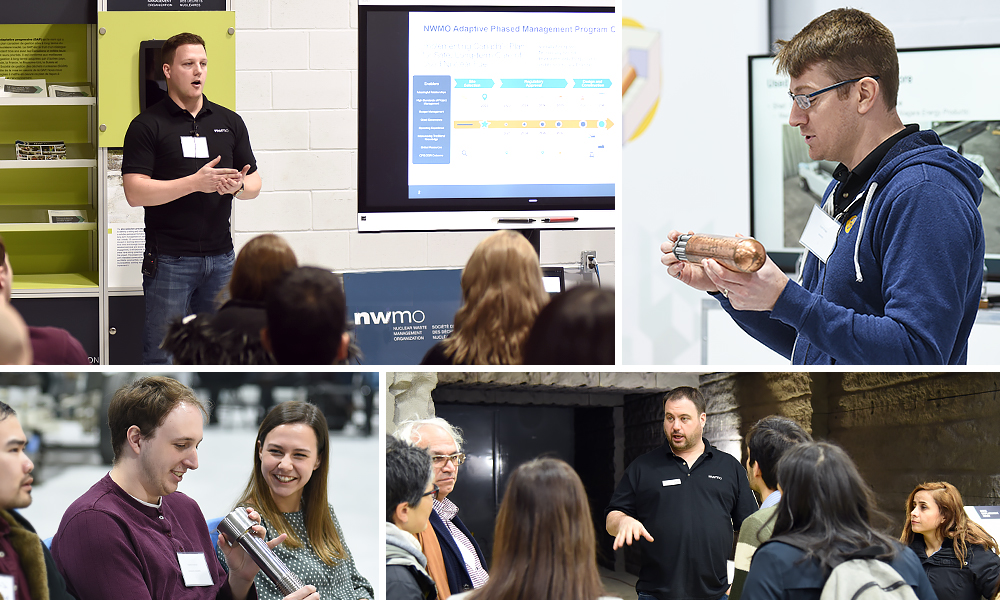The NWMO works with a group of highly skilled academics in diverse fields who conduct research that contributes to Canada’s plan. Each year, we host an annual tour at our engineering proof test facility in Oakville to bring together our research partners to share their progress and to foster collaboration. They also have the opportunity to see innovation in action as they get a first-hand view of how Canada’s plan is advancing. This meeting focuses on the engineered barriers and is complementary to our annual seminar that focuses on our research in the geosciences.
“The researchers each focus on one specific aspect of the project. This day is about facilitating conversations and collaboration between our researchers, as well as providing a larger context,” said Dr. Jeff Binns, Corrosion Scientist at the NWMO and tour organizer.
This year, 60 academics from seven Canadian universities gathered at the proof test facility on a brisk February day.
In the morning, the NWMO technical staff provided updates on our used fuel container, bentonite manufacturing, upcoming mock emplacement trials, our technical transportation program, and our research and development program.
“Two years ago, I was able to see where my project fits in and why it’s relevant [to Canada’s plan]. Coming back a second time has allowed me to see how the project is evolving,” said Lindsay Grandy, a doctoral student in Physical Chemistry at Western University. Ms. Grandy is studying how the presence of radiation influences chemistry and copper behaviour in the deep geological repository.
New this year, the tour incorporated an update from the Indigenous Relations team at the NWMO. Jessica Perritt, NWMO Section Manager of Indigenous Knowledge and Reconciliation, spoke about the NWMO’s Reconciliation journey, how we interweave Indigenous Knowledge into our work, and the importance of developing relationships so projects can be successfully implemented.
“I like that the NWMO is taking the Indigenous perspective so seriously and also that it is passing it along to those of us who are not directly involved [in the NWMO]. As I was listening to some of the training that is being provided, I thought it would be great to access some of those opportunities,” said Dr. Greg Slater, an organic and isotope geochemist from McMaster University.
In the afternoon, Dr. Slater, who is conducting microbial research in an environment related to a deep geological repository, provided an update to the group. So too did other professors and post-doctoral students from universities, including Guelph, McMaster, Toronto, Waterloo, Ontario Tech, York, and Western.
Following the presentations, students displayed poster boards of their research, which facilitated additional conversation. Ms. Grandy reflected on conducting research for Canada’s plan. “I wanted to do research that was meaningful for the world, and there’s not much that is more meaningful than this… Nuclear waste needs to be addressed, and I am quite proud that I am helping to address it safely.”

